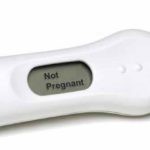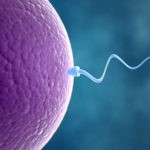IVF – When does it not work?

In Vitro Fertilization (IVF) is the most common form of Assisted Reproductive Technology. It is the only acceptable treatment to cure infertility and achieves positive results. Around 40% of those who embark upon the journey tend to fall pregnant after a single attempt. But many a time there are individuals for whom IVF fails for various reasons causing frustration and heartache for these couples. Some of these reasons can be:
1. Female Age:
The likelihood of a woman getting pregnant as she gets older decreases over time. Each woman is born with a certain number of eggs. Some studies show that 32% of women are likely to give birth after IVF at the age of 35 but only there is only 16% chance for a woman who is 40.
2. Embryo Quality:
Another contributing factor to the failure of IVF is the embryo quality. Some embryos have genetic or chromosomal abnormalities that can make them too weak too work for IVF. Still other embryos don’t have enough cells to survive and are less likely to fertilize.
3. Ovarian Response
Sometimes a woman’s ovaries just do not respond properly to the IVF treatment, which tries to get the ovaries to produce multiple eggs. The chances are that IVF will fail when the body does not listen to the medication to produce more eggs.
4. Implantation Issues
The most common reason that IVF treatment fails is implantation issues. Implantation issues occur when the embryo stops growing and if there are polyps or cysts on the ovaries.
The truth of the matter is that IVF doesn’t always work. It is expensive and also a very stressful process. It can be very hard to accept when if the IVF treatment does not work and you may not always understand why. But don’t ever blame yourself or forget that there are people around you who care and can talk to.
Reference:
http://www.advancedfertility.com/ivf-implantation-failure.htm
http://haveababy.com/fertility-information/ivf-authority/my-ivf-cycle-failed-what-went-wrong-2




